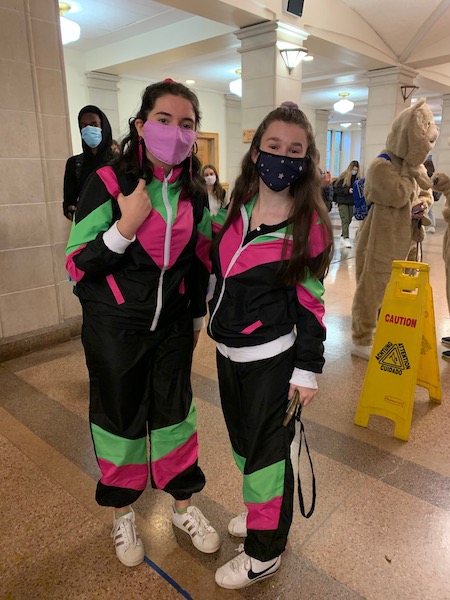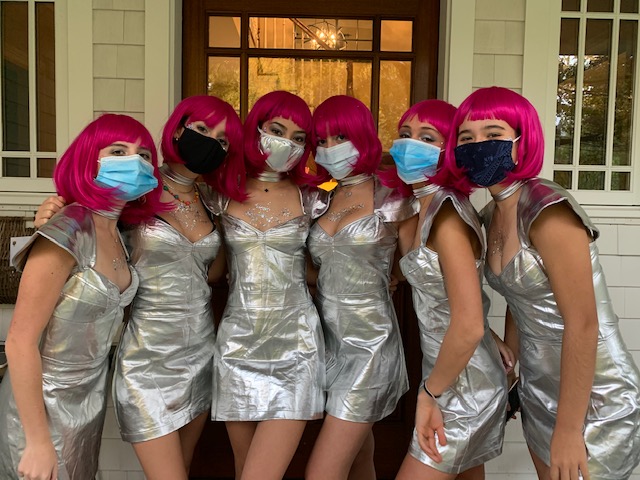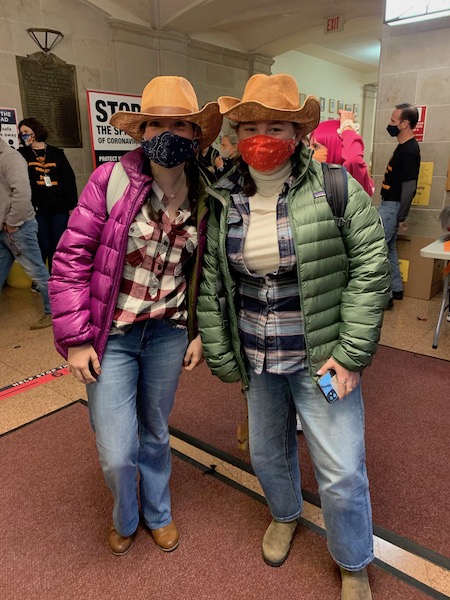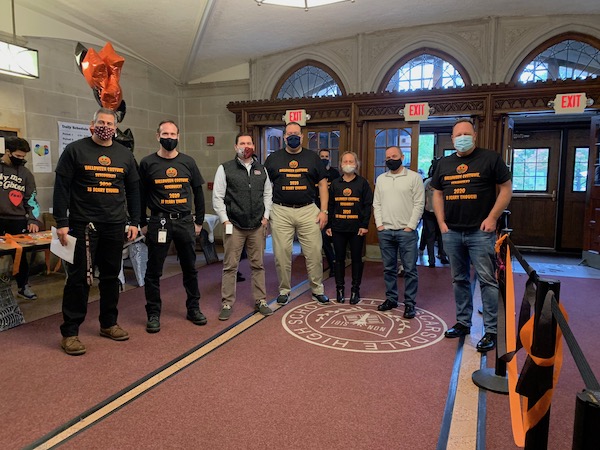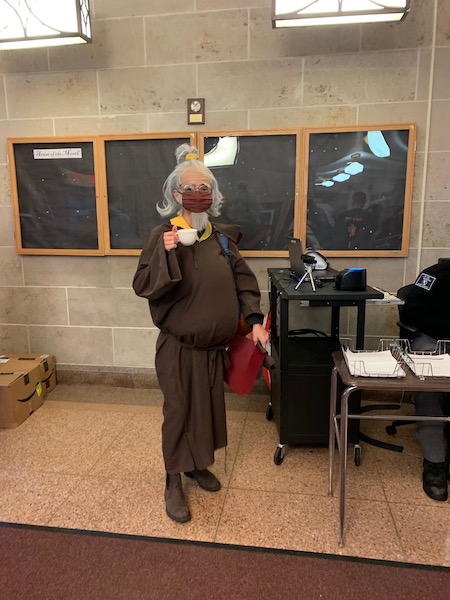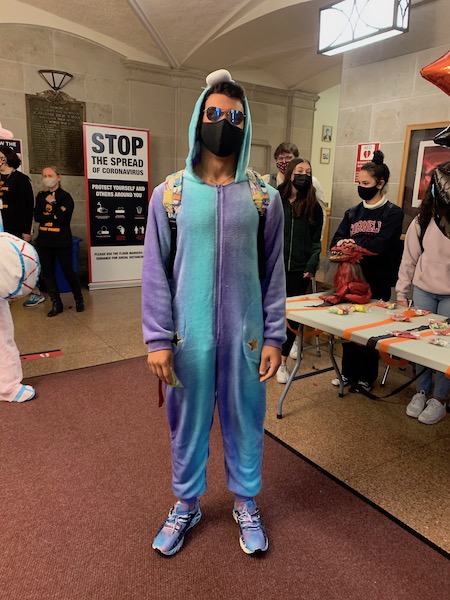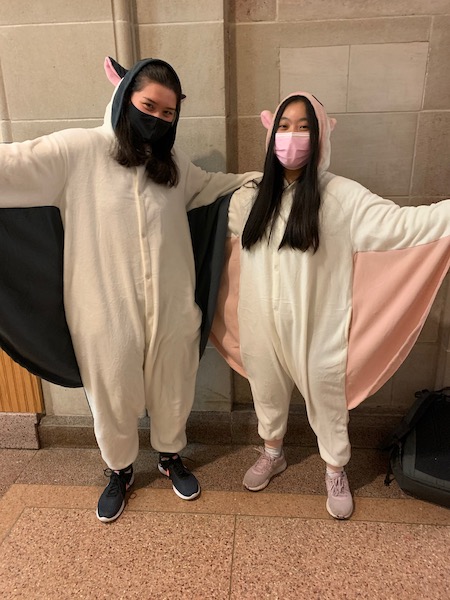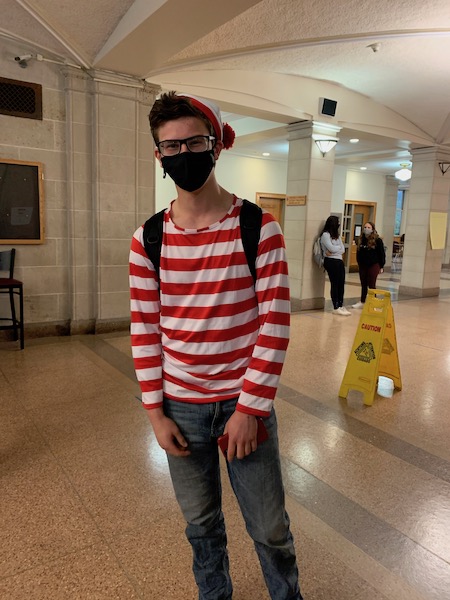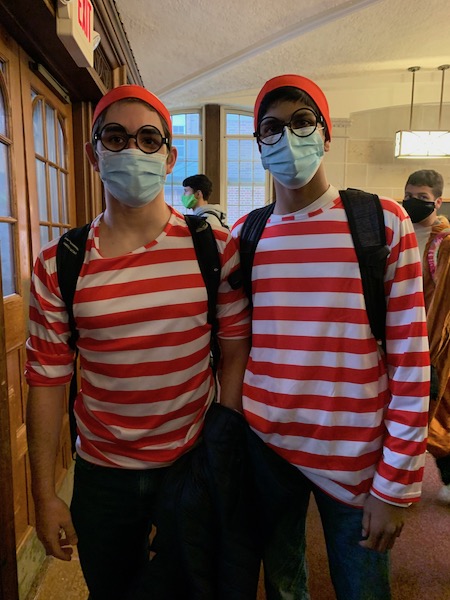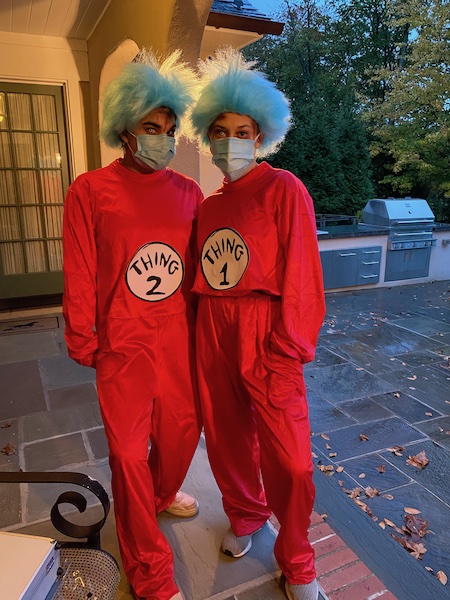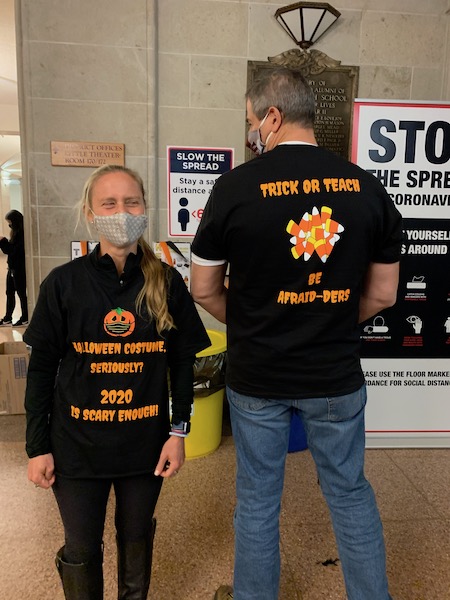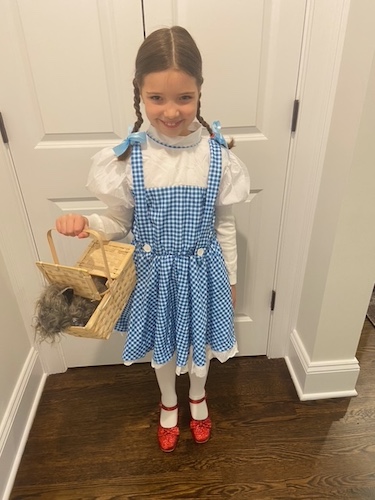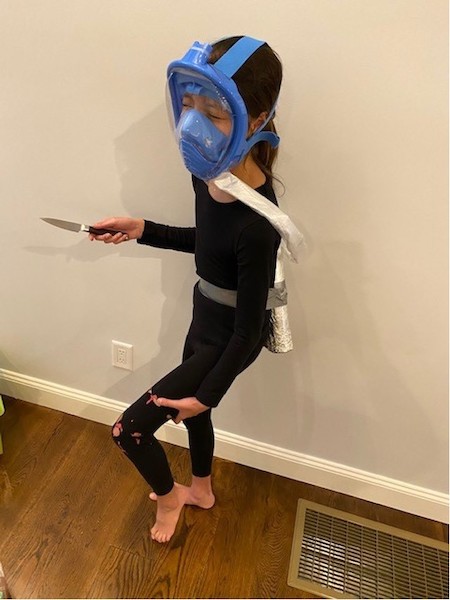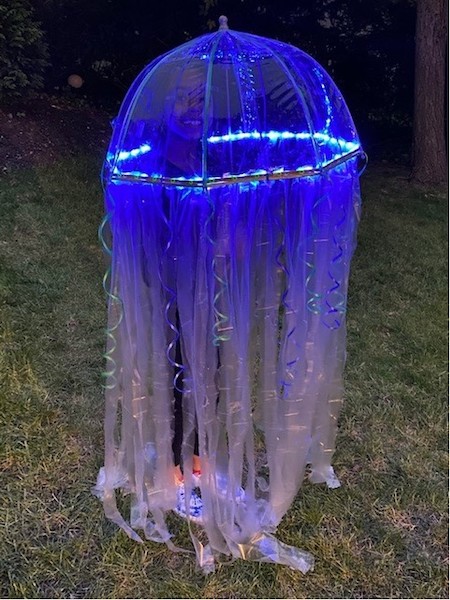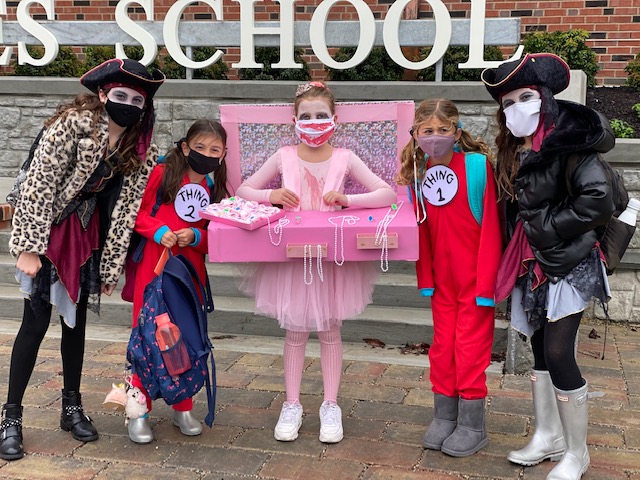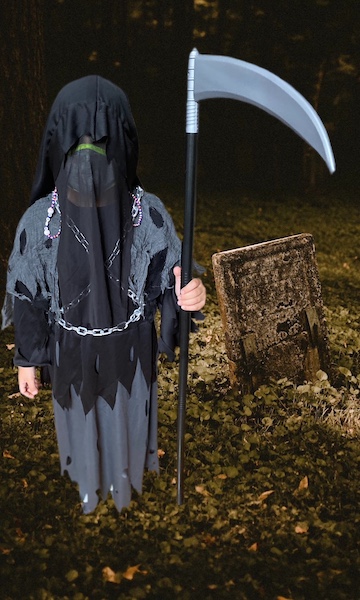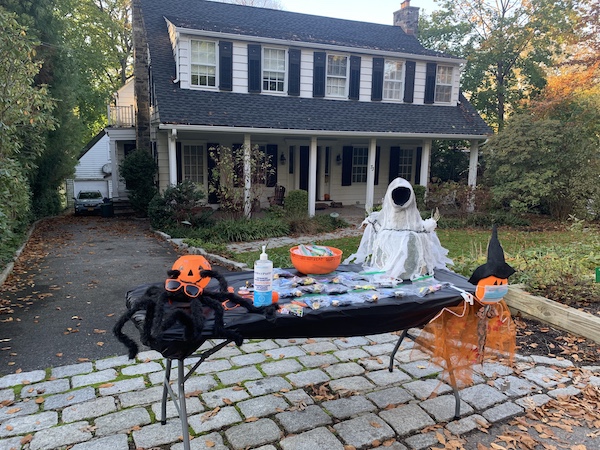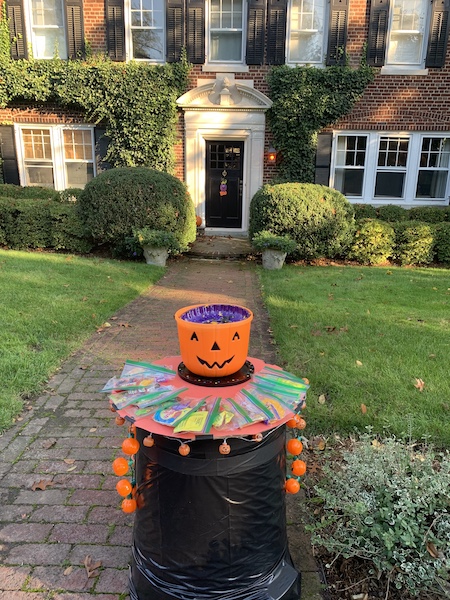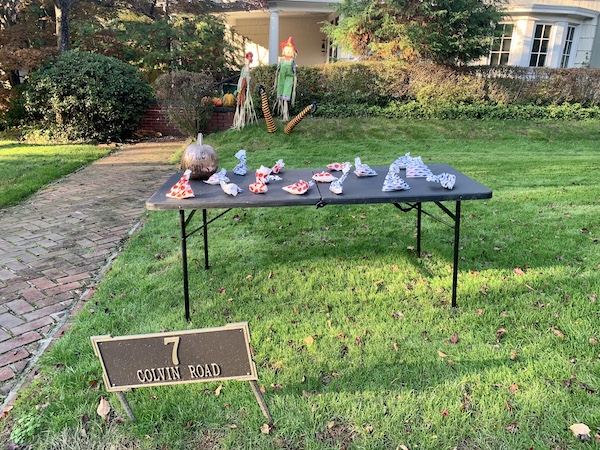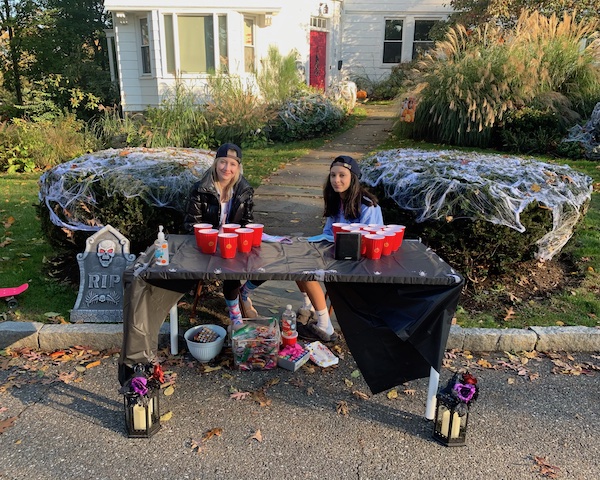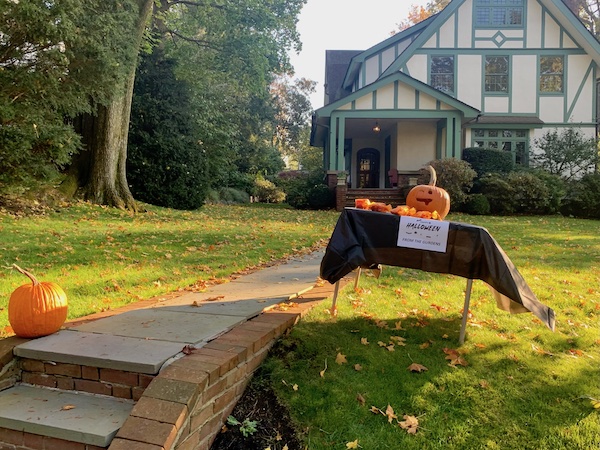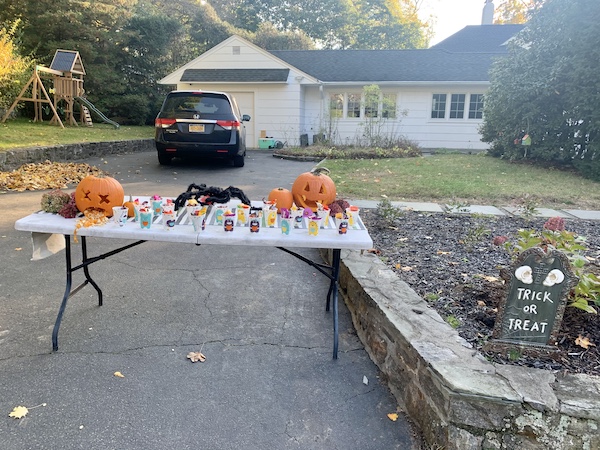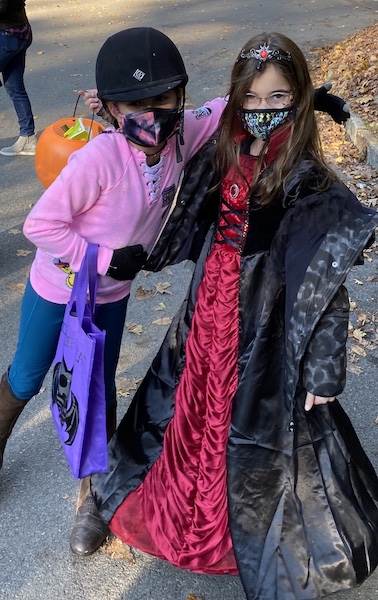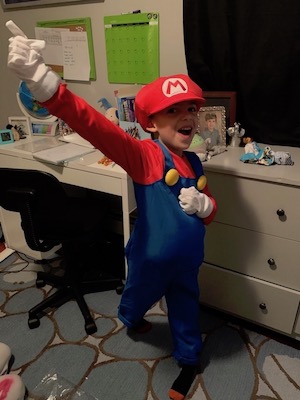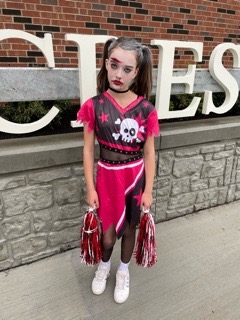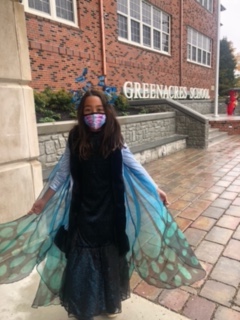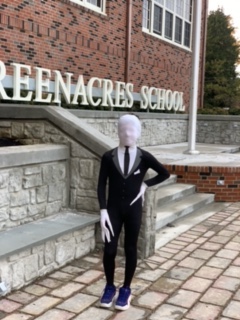Village Asks Residents to Pick Up Their Own Leaves
- Details
- Written by: Joanne Wallenstein
- Hits: 2382
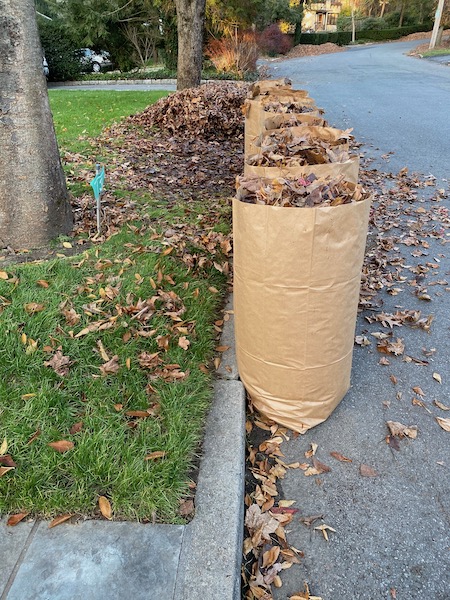 With 11 members of the highway department either out of work with COVID or due to exposure, the Village’s ability to complete three rounds of fall leaf pick-up has been impaired. At the Village Board meeting on Tuesday November 24, Village Manager Steve Pappalardo reported that the Village has almost completed their second round of pick-up but may not be able to finish the third round, which will leave many leaf piles on Village streets.
With 11 members of the highway department either out of work with COVID or due to exposure, the Village’s ability to complete three rounds of fall leaf pick-up has been impaired. At the Village Board meeting on Tuesday November 24, Village Manager Steve Pappalardo reported that the Village has almost completed their second round of pick-up but may not be able to finish the third round, which will leave many leaf piles on Village streets.
He asked for residents and landscapers to help in one of three ways:
-We strongly encourage on-site mulch mowing – it’s easy and beneficial.
-Direct your landscaper to transport leaves to the Recycling Center, 110 Secor Road, where the
leaves are accepted free-of-charge if accompanied by a letter from the property owner attesting to the fact that leaves originated from their Scarsdale residence.
-Bag leaves for curbside Sanitation pickup on your second collection day of the week.
We drove around the neighborhood today and saw that a few homeowners had already responded, packing leaves into bags for pick up by the sanitation department.
Above is a photo of my curb – where I discovered that I needed quite a few bags to complete the job!
Letter to the Editor: What Happened to the Trees Along the Bronx River Parkway?
- Details
- Written by: Joanne Wallenstein
- Hits: 2567
 We received the following letter from Edgemont resident Comert Guneri, expressing his dismay about the loss of trees during the construction of the bike path along the Bronx River Parkway:
We received the following letter from Edgemont resident Comert Guneri, expressing his dismay about the loss of trees during the construction of the bike path along the Bronx River Parkway:
To the Editor: I would like to refer to your article regarding subject matter back in April 2017. As you are aware Westchester Parks and Recreation have already started the pathway project that connects Hartsdale and Scarsdale. I live in Edgemont in Hartsdale and have been a resident for almost 40 years in the same home.
What I like about my area is how peaceful and quiet it has been for so long. I have recently noticed a lot of noise coming from the Bronx River Parkway which we never heard before. As I further investigated, I saw the disaster on the Bronx River Parkway along the new pathway that is currently being built. I did a further search online and came across your article.
They have cut down so many trees there is almost nothing left. Hence the reason so much noise is being heard from inside and outside my house. The Bronx River Parkway and the train traffic are almost literally going through my living room.
Although, I am a supporter of this project I feel that it has NOT been done correctly. I would like to mention that we are very fortunate to live in this area as it "VERY SPECIAL" and must be maintained that way.
Your article said only about 200 trees would be cut down but it’s obviously a lot more. I went on Google Maps and took some screenshots of the previous photos showing many trees along the Bronx River Parkway.
If you go and look now at the same area you may end up crying.
I kindly ask you to follow up on the project as it has done more harm than good. I believe if the same project was done on the other side of the Bronx River Parkway it would have been less painful for everyone.
I am sure the residents along the other side of the Bronx River Parkway probably think the same thing since they must be hearing a lot of noise from the train tracks, and Piipeline road as far as Central Avenue.
The trees were so dense that all that noise was being absorbed by the trees. But now there is no place for the noise to bounce off.
This is NOT something I usually do but since I live in an area where I am paying the highest tax rates in the country I think I at least deserve some peace and quiet.
Comert Guneri
45 Midvale Road
Hartsdale, NY 10530
CNC Invites Public to Organizational Meeting November 30, 2020
- Details
- Written by: Joanne Wallenstein
- Hits: 1662
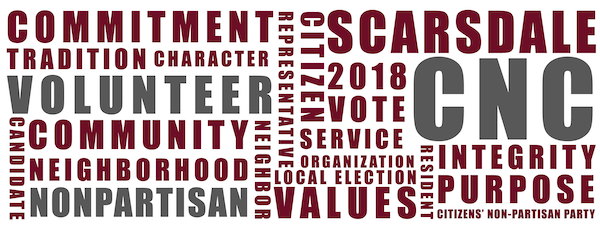
Scarsdale Citizens Nominating Committee welcomes the 10 newly elected members and invites the public to observe its first meeting Monday, November 30, 2020 at 8:00 PM. The meeting will be held via Zoom video conferencing service. Members of the public wishing to follow the meeting can do so by following this link: Come to the meeting to learn more about Scarsdale's non-partisan system for selecting candidates to run for Village office on the Scarsdale Citizens' Non-Partisan Party slate.
The CNC consists of 30 elected Scarsdale residents who represent their neighborhood election units (Edgewood, Fox Meadow, Greenacres, Heathcote and Quaker Ridge). Ten new members are elected to the CNC each November to serve staggered three-year terms. The volunteer group will meet from November to January to seek, interview, and evaluate potential candidates to run for Village office. This year the CNC will nominate individuals to run for three openings on the Scarsdale Village Board and Village Mayor. Trustee Seth Ross will be finishing his second two-year term and Trustees Rochelle Waldman and Jonathan Lewis will be completing their first two-year term. Village Mayor Marc Samwick will be finishing his two-year term. The General Village Election will be held at Village Hall on Tuesday, March 16, 2021.
Scarsdale's non-partisan system has been operating successfully for over 100 years, following a contentious election in 1909. The goal of the non-partisan system is to attract qualified citizens who would otherwise avoid campaigning, but would be willing to run for office in elections. The CNC's deliberations and due diligence on all potential nominees is kept confidential to further encourage well-qualified volunteers to apply for a spot on the non-partisan slate. Typically there are four non-elected and non-voting administrative members of the CNC present to insure adherence to the procedural requirements of the Non-Partisan Resolution. Potential candidates also have the option to run for office outside of the Non-Partisan System under provisions of New York State law.
Are you interested in running for Trustee or Village Mayor? Do you know someone who would serve the Village of Scarsdale well? Contact any elected member of the CNC, or inform the CNC Chair, Eric Lichtenstein, at 917-864-1122 or edlichtenstein@gmail.com, or CNC Vice Chair, Steve Pass at 917-744-5026 or smpass@gmail.com .
Topic: CNC 2020 Public Meeting
Eric Lichtenstein is inviting you to a scheduled Zoom meeting.
Topic: CNC 2020 Public Meeting
Time: Nov 30, 2020 08:00 PM Eastern Time (US and Canada)
Join Zoom Meeting
https://us02web.zoom.us/j/85397420451
Meeting ID: 853 9742 0451
One tap mobile
+19292056099,,85397420451# US (New York)
+13126266799,,85397420451# US (Chicago)
Dial by your location
+1 929 205 6099 US (New York)
+1 312 626 6799 US (Chicago)
+1 301 715 8592 US (Washington D.C)
+1 253 215 8782 US (Tacoma)
+1 346 248 7799 US (Houston)
+1 669 900 6833 US (San Jose)
Meeting ID: 853 9742 0451
Find your local number: https://us02web.zoom.us/u/kevXXpF6CL
BOT Refers Recommendations to Reduce Home Bulk to the Planning Board
- Details
- Written by: Joanne Wallenstein
- Hits: 4187
 Calls for changes to the zoning code to limit home size, height and the appearance of bulk were addressed at a work session of the Board of Trustees on Tuesday November 10, 2020. A Bulk Committee was formed in October 2018 and they presented their recommendations in July 2019. In October 2019, the BOT asked Village staff to study the potential impact of several proposed recommendations from the committee, but after the COVID crisis hit in March, the issue was put aside again.
Calls for changes to the zoning code to limit home size, height and the appearance of bulk were addressed at a work session of the Board of Trustees on Tuesday November 10, 2020. A Bulk Committee was formed in October 2018 and they presented their recommendations in July 2019. In October 2019, the BOT asked Village staff to study the potential impact of several proposed recommendations from the committee, but after the COVID crisis hit in March, the issue was put aside again.
Now, two years later, Village staff presented their findings to the Board, and the Board voted to send these five recommendations, targeted to achieve modest reductions in home size, to the Planning Board for review. The recommendations address maximum allowable height, reduce the size of a bonus that allows for increased FAR, require that bonus floor area is built only on the first floor and dictates that any homes that are 15,000 square feet and more receive a special use permit from the Board of Appeals.
Study by Village staff determined that these recommendations would not yield dramatic reductions in home size. In fact, they estimated that the floor area ratio of maximum sized homes would only be reduced by 5%. However, after studying the issue for years, the Board agreed to move forward on these recommendations as an initial step. As with all code changes, they will review the impacts in a few years to see if these have the desired affect or need additional tweaking.
The five recommendations are as follows:
-Reduce the maximum permitted height to 32 feet from 35 feet, measured to the midpoint of the roof.
-Reduce the Floor Area Ratio, (FAR) side yard setback bonus by 30%
-Eliminate the FAR requirement that in order to qualify for the side yard setback bonus, additions to existing homes must be built at the rear of the house.
-Clarify the code to specify that the FAR garage credit applies to the square footage of the floor level of the garage where cars are parked, but not to space on the upper floors.
-Require Planning Board site plan approval for single family residential projects involving more than 15,000 square feet of gross floor area rather than a special use permit from the Board of Appeals
Jeff Watiker, the long- time chair of the Zoning Board of Appeals explained that this worked started in October 2018. Village staff was asked to compare Scarsdale’s zoning tools with other municipalities. A Bulk Review Committee, including the Chairs of the Planning Board, Zoning Board and Board of Architectural Review was formed and they presented their findings to the Village Board in October 2019. At that point, the trustees asked Village staff to study the potential affects of the first two recommendations … height reduction and elimination of 30% of the side yard setback bonus.
They considered 33 new homes and 32 additions that were considered by the BAR from 2014 - 2017 to see how these changes would have affected the outcomes. Read the full report here.
Topline, they determined that the height reduction from 35 to 32 feet would not result in many non-conforming properties as 90% of the new homes and 87% of the additions were built at a height of 32 feet.
However, the reduction in the side yard setback bonus would have an impact as only 47% of the new homes and 92% of the additions would meet these new guidelines. Tables and charts showing the impacts can be reviewed here: For example, on a home that was permitted to be 700 square feet larger due to the side yard setback bonus, under the new law that bonus would be reduced to 490 square feet. While not dramatic, the 210 square foot reduction in allowable square footage could have an impact on the overall perception of home bulk.
Commenting on the recommendations, Village Planner Greg Cutler said, “I think these strikes a balance… There are not too many non-conformities and they will move the needle in a certain direction.”
Trustee Justin Arest asked to see some hypothetical examples of how these code changes might affect the design of new homes. He said, “What is bulk? ....There is no definition. Can we show this on some hypothetical homes? Non-conformities should not be a priority from my perspective.”
Trustee Lena Crandall said, “This is an incremental proposal. I believe it is reasonable. The community has been waiting a long time to address the bulk of homes being built.”
Mayor Marc Samwick favored sending these recommendations to the Planning Board for review. He said, “A lot of work went into this. An incremental step has real benefit. Whatever we do will be subject to review in the years to come. This is an admittedly gradual step to respond to the community and what we heard from prior boards. We can study this until the cows come home. It’s important to get this in front of the community. It would have to go to the planning board first. After we get their comments we can draft a change to local law.”
The board voted 6-1 to refer the recommendations to the Planning Board.
Pandemic Prescription for Halloween
- Details
- Written by: Joanne Wallenstein
- Hits: 2562
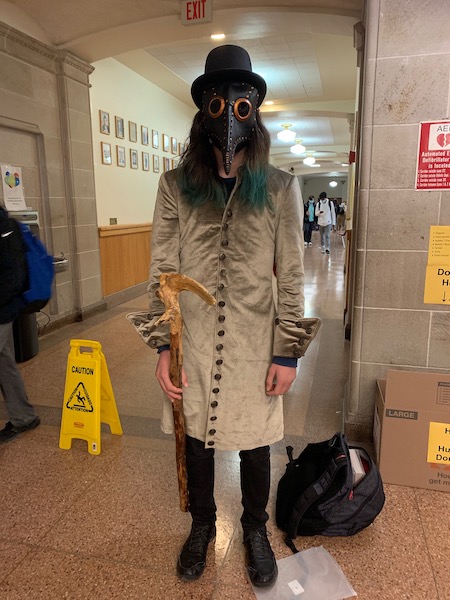 The Plague Doctor at Scarsdale High SchoolThough it wasn’t your usual Halloween, Scarsdalians found safe ways to celebrate the holiday. The devised ingenuous costumes, many with themes involving the strange happenings this year including a Purell bottle, the Grim Reaper and several plague doctors, dressed up in Medieval gear.
The Plague Doctor at Scarsdale High SchoolThough it wasn’t your usual Halloween, Scarsdalians found safe ways to celebrate the holiday. The devised ingenuous costumes, many with themes involving the strange happenings this year including a Purell bottle, the Grim Reaper and several plague doctors, dressed up in Medieval gear.
You might ask, what is a Plague Doctor? According to Scarsdale Art Historian Linda Wolk Simon, these harken back to the outbreak of the bubonic plague in the 6th century when doctors visited the afflicted wearing pointy, beak-like nose masks. The “beak” was filled with rose petals or other pungent flowers to act as a kind of filter and, it was wrongly believed, protect or shield the wearer from the pestilence. By the late 17thc, “the doctor” became a stock character in Italian Commedia Dell’Arte, improv traveling theater. The character always wears that mask and a large flat hat.
At Scarsdale High School, in addition to plague doctors, we saw a troupe of medical doctors (today’s superheroes), a school of sharks, bears, flying squirrels, astronauts, cowgirls, kangaroos, traffic cones and more.
saw a troupe of medical doctors (today’s superheroes), a school of sharks, bears, flying squirrels, astronauts, cowgirls, kangaroos, traffic cones and more.
The deans and principals wore black and orange Halloween t-shirts that read, “Halloween Seriously? 2020 is Scary Enough,” on the front, and on the back said, “Trick or Teach,
Be Afraid-ers,” and did their best to drum up the holiday spirit as Cohorts A and B left school on rainy weather on Thursday and Friday October 29 and 30.
Take a look at the high school students below:
The younger kids also had some fun. At Greenacres, students posed for Halloween photos in front of the newly-installed school sign and enjoyed spooky treats. Winners of the Greenacres costume contest were Lois Levy (Zombie Ballerina Jewelry Box - 1st prize), Lola van Santen (Zombie Cheerleader - 2nd prize), Nicola Dechiario (Butterfly Fairy - 3rd prize) and Finn Pearson (Slenderman).
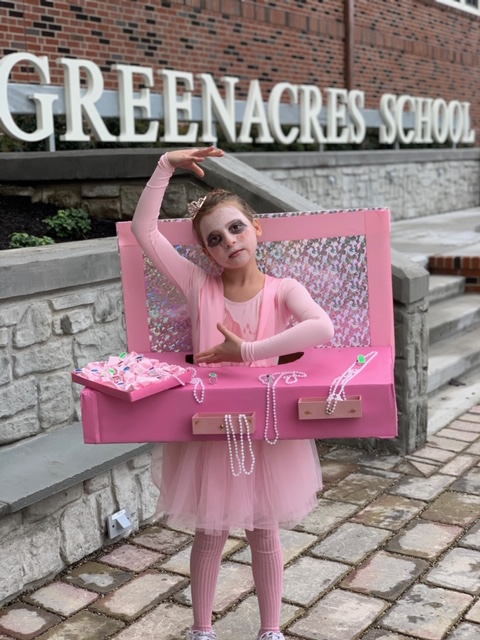
We also received some terrific photos of kids in costume and trick or treating around town. To add yours to our Halloween photo gallery, please email photos to scarsdalecomments@gmail.com.
On Halloween, since guidelines discouraged door to door trick or treating, residents set out tables with individual Halloween treats for kids to take. See photos below of a Pandemic Pumpkin Patch in Davis Park and of treats set out along a popular stretch of Brewster Road in Greenacres.
Whatever your experience, it was a Halloween that no one will ever forget.
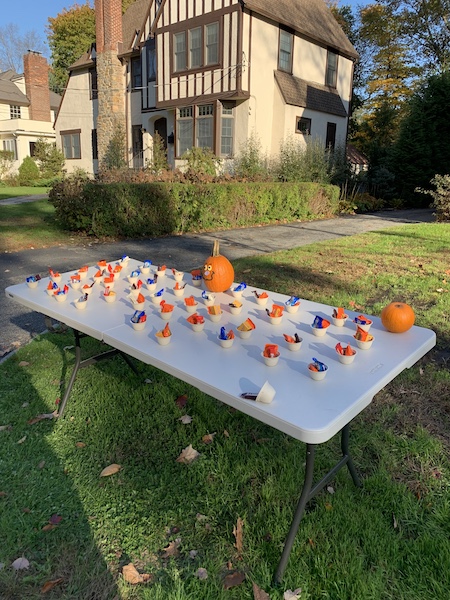 Brewster Road Trick or Treat
Brewster Road Trick or Treat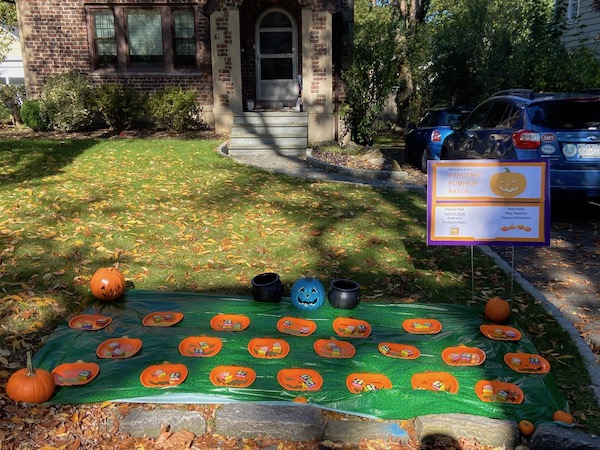 A Pandemic Pumpkin Patch in Davis Park
A Pandemic Pumpkin Patch in Davis Park







